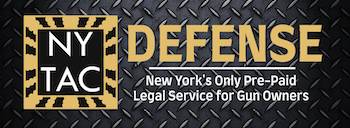Representation.
Conversion
The tort of conversion gives people who are the victims of theft the right to a private cause of action to recover damages. In other words conversion gives one the right to sue to recover stolen property. Conversion occurs when a person, with intent, and without authority, takes control over the property or money of another, and thereby obstructs the other’s ability to possess their property or money.
If you or someone you know has a case involving conversion or converting property call our experienced and tough New York intentional tort litigation lawyers. Our knowledgeable and thorough New York intentional tort litigation lawyers will fight to win your case. Call our office for a free consultation today.
The two elements of a conversion claim are 1) that the plaintiff actually had the right to possess the property and 2) that the defendant actually assumed control over the property that the plaintiff had a right to control and possess, and thereby interfered with the plaintiff’s property in a manner that infringed on the plaintiff’s rights. The tort of conversion traditionally applies to property that is discreetly identifiable, actual in character, physically able to be touched, and personal property. Conversion has been held to apply to medical files, cars, animals, hand written records of real estate transactions and cash. In recent years the law has gradually accepted that virtual documents and records may be converted as well.
Damages for conversion depend on how valuable the property was before it was stolen, the time and place that the property was stolen from, interest therefrom, and lost profits if profits were understood to come from the property stolen. The damages for future profits must be measurable rather than speculative. Attorney’s fees are generally not recoverable in conversion claims.
The tort of conversion has ancient roots. Prior to 1066, before William the Conqueror sailed the English Channel and claimed England for himself, victims of the crimes of robbery and larceny held two rights to recoup their property: the right of wager by battle, more popularly known as trial by battle as popularized in the television and novel series A Game of Thrones, and a recuperatory appeal. In a recuperatory appeal, if the criminal was apprehended in possession of the stolen property, they were summarily executed and the property was restored to its rightful owner. In a recuporatory appeal the victim merely had the right to return of their property, regardless of how exhausted or damaged it was. In a wager of battle, the thief and the victim dueled to the point where one either died, exhausted themselves to the point where one could not fight, or one submitted by yelling out “craven”. The victor would take title to the property in question.
Over time both of these remedies, wager of battle and recuperatory appeal, gradually receded to criminal prosecution by the English crown. This presented another unwelcome consequence to the victims of theft, because, stolen property was commonly forfeited to the crown rather than restored to the victim. In order to allow for victims of theft to recoup their losses a new species of the tort of trespass was created. This new type of trespass tort did not adequately make the victims of theft whole because damages only could compensate victims for the loss of the property, which usually was much less than the property was worth to begin with.
Therefore, a civil cause of action needed to be formulated to fit between trespass and the criminal punishment for robbery and larceny. To fill this gap, a new civil cause of action came into being known as trover. Actions for trover were targeted at people who found property and refused to return it. Over time trover was stretched to cover many different types of misappropriations until the tort morphed into what we know today to be conversion.

















